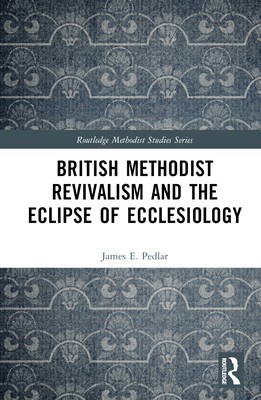
- We will send in 10–14 business days.
- Author: James E Pedlar
- Publisher: Routledge
- ISBN-10: 103211147X
- ISBN-13: 9781032111476
- Format: 15.6 x 23.4 x 1.3 cm, hardcover
- Language: English
- SAVE -10% with code: EXTRA
British Methodist Revivalism and the Eclipse of Ecclesiology (e-book) (used book) | bookbook.eu
Reviews
Description
Revivalism was one of the main causes of division in nineteenth century British Methodism, but the role of revivalist theology in these splits has received scant scholarly attention. In this book, James E. Pedlar demonstrates how the revivalist variant of Methodist spirituality and theology empowered its adherents and helped foster new movements, even as it undermined the Spirit's work through the structures of the church. Beginning with an examination of unresolved issues in John Wesley's ecclesiology, Pedlar identifies a trend of increasing marginalization of the church among revivalists, via an examination of three key figures: Hugh Bourne (1772-1852), James Caughey (1810-1891), and William Booth (1860-1932). He concludes by examining the more catholic and irenic theology of Samuel Chadwick (1860-1932), the leading Methodist revivalist of the early twentieth century who became a strong advocate of Methodist Union. Pedlar shows that these theological differences must be considered, alongside social and political factors, in any well-rounded assessment of the division and eventual reunification of British Methodism.
EXTRA 10 % discount with code: EXTRA
The promotion ends in 10d.02:26:19
The discount code is valid when purchasing from 10 €. Discounts do not stack.
- Author: James E Pedlar
- Publisher: Routledge
- ISBN-10: 103211147X
- ISBN-13: 9781032111476
- Format: 15.6 x 23.4 x 1.3 cm, hardcover
- Language: English English
Revivalism was one of the main causes of division in nineteenth century British Methodism, but the role of revivalist theology in these splits has received scant scholarly attention. In this book, James E. Pedlar demonstrates how the revivalist variant of Methodist spirituality and theology empowered its adherents and helped foster new movements, even as it undermined the Spirit's work through the structures of the church. Beginning with an examination of unresolved issues in John Wesley's ecclesiology, Pedlar identifies a trend of increasing marginalization of the church among revivalists, via an examination of three key figures: Hugh Bourne (1772-1852), James Caughey (1810-1891), and William Booth (1860-1932). He concludes by examining the more catholic and irenic theology of Samuel Chadwick (1860-1932), the leading Methodist revivalist of the early twentieth century who became a strong advocate of Methodist Union. Pedlar shows that these theological differences must be considered, alongside social and political factors, in any well-rounded assessment of the division and eventual reunification of British Methodism.


Reviews